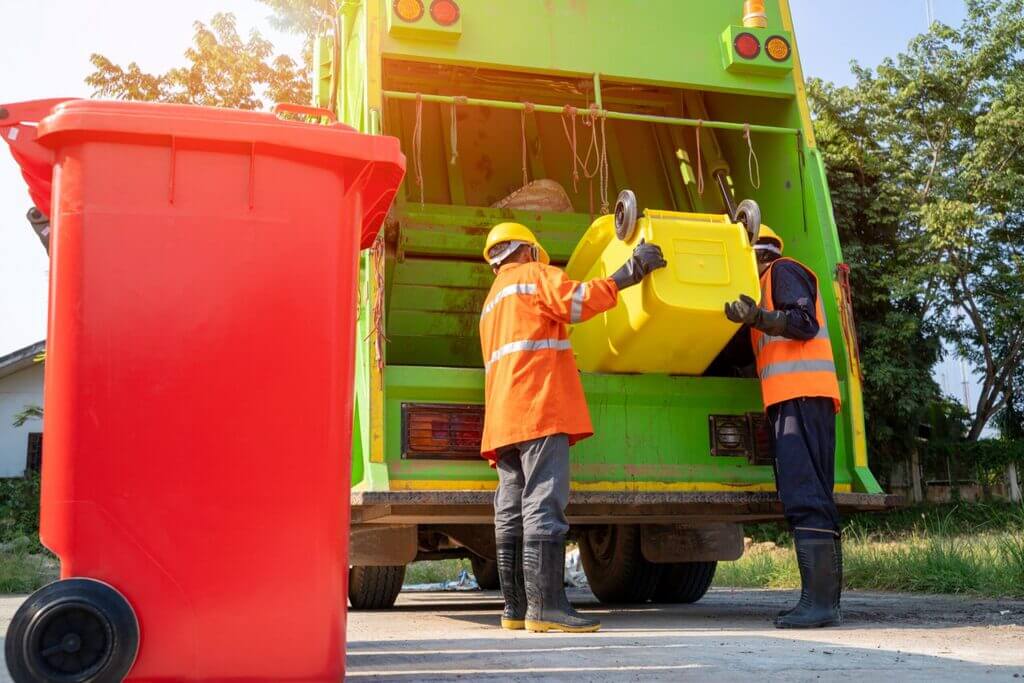
Rubbish is a very common everyday word, and you will hear this when people discuss rubbish outlets, removal, and garbage dumps. Efficient Waste Management is a challenging task that must be addressed with great care and attention. Rubbish disposal is one of the most challenging tasks in waste management, as it involves careful removal, transportation and disposal of the rubbish. The rubbish disposal process is an essential part of your life that you shouldn't overlook because ignoring it can turn out bad for you. Here's everything you must know about rubbish disposal.
What Is Rubbish Disposal?
Rubbish disposal removes unwanted items safely, legally and environmentally friendly. The rubbish bin is where you can throw your trash or junk, and your garbage bin should be near your house or apartment so that it doesn't attract flies, rats, or other insects.
Why Is Rubbish Disposal Necessary?
Everybody generates rubbish. Whether you live in private or communal property, no home is complete without some trash. That is why rubbish disposal is necessary. Here are some reasons why it is essential:
To Prevent the Spread of Diseases
Rubbish contains bacteria and other germs that can spread if not disposed of properly. When you throw away food, for instance, it attracts flies, spreading germs when they sit on other things in your home. This is why you should always wash your hands after handling garbage, so you do not get sick from it.
To Stop Pollution
When you dispose of your trash properly, it does not pollute the environment as much as when left to rot in landfills and drains. Organic waste decomposes naturally, but plastic never does; this means that when plastic ends up in landfills, it takes centuries before it breaks down into smaller pieces which can then be recycled or incinerated safely.
To Make Way for Development
Disposing of rubbish is crucial because it helps in making way for development. Without this process, there would be no way for people to make use of the land that they want to use. It is also essential because it helps remove any contaminated materials from the environment so that people are not affected.
How To Dispose of Different Classifications of Rubbish
There is a wide variety of rubbish one can dispose of these days. Some types of waste can be simple to eliminate, whereas others may take more effort or expense. You can learn how to dispose of different kinds of rubbish properly in several ways.
Liquid Waste
This waste can be disposed of in several ways. You can include it in your regular garbage collection or put it into the sewer system. However, this may not always be an option because liquid waste is heavy and takes up more space than other types of rubbish. If you have too much liquid waste to fit into your garbage bin, consider renting a compactor truck that can compact the load down to a manageable size so that it can be taken away in one go.
Glass Waste
Glass is a common waste product that can be disposed of with your regular rubbish if broken or in pieces. However, the best way to dispose of glass waste is by taking it to your local council tip, where it can be recycled. You could also consider taking it to a glass recycling facility or selling it on eBay for extra cash.
Plastic Waste
Plastic waste is one of the vast problems facing mankind today. Plastic takes hundreds of years to break down, causing vast amounts of environmental damage.
Recycle it at home. If you have plastic bottles or other items which can be recycled, then it's easy enough to throw them into your recycling bin. The problem is that many people don't recycle as much as they can, meaning that there is still a lot of plastic going into landfill sites around the country.
Paper Waste
The paper waste consists of paper, cardboard, envelopes and non-recyclable plastic packaging. Recycle all paper products in your home by placing them in your recycling bin. Recycling is easy! Simply put your paper products out for collection on your normal waste collection day.
Toxic or Chemical Waste
This category includes any waste that contains chemicals, poisons, pesticides, herbicides, radioactive materials and other hazardous substances.
Toxic waste should not be disposed of in landfills or with general rubbish and must be taken to a particular toxic waste disposal facility. These facilities are usually found near large cities and industrial areas. Some communities have household hazardous waste collection days where residents can bring their unwanted chemicals to a central location for proper disposal.
Electronic Waste
Electronic waste is a broad term for all electrical and electronic devices their owners can no longer use. Some examples include Computer monitors, printers, cell phones, and televisions.
Many cities have recycling centres where you can drop off items like televisions or computers for free or at a nominal fee. Some cities also offer programs where you can drop items off at designated locations throughout the city for free pickup by the city's sanitation department or local charities or non-profit organizations, who will then recycle them properly for you.
Conclusion
The correct information is the key to health and safety in your business, children's playground or garden. Rubbish disposal seems complex and confusing at first. But it doesn't have to be. There are some simple rules to follow which will help you achieve a safe result and protect yourself against unnecessary risks and liabilities. There you have it, everything you must know about rubbish disposal.






